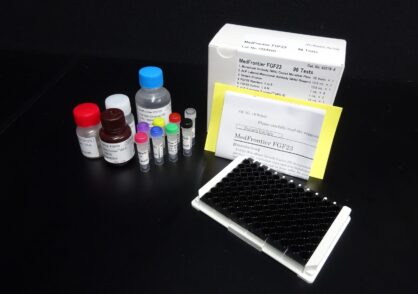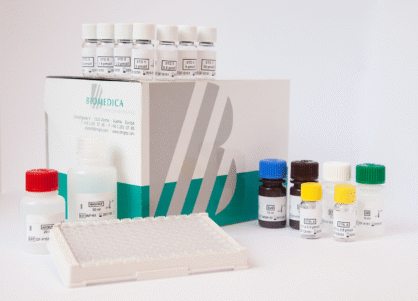Pancreatic Elastase ELISA Kit
Pancreatic elastase is a serine protease enzyme produced by the pancreatic acinar cells and secreted into the duodenum, where it plays a key role in the digestion of proteins by breaking down elastin and other peptides. Unlike many other digestive enzymes, pancreatic elastase remains stable and active as it passes through the gastrointestinal tract, making it an ideal biomarker for assessing exocrine pancreatic function. The most commonly measured form is pancreatic elastase-1, which is detected in stool samples as fecal elastase using enzyme-linked immunosorbent assays (ELISAs).
In both clinical and research settings, fecal pancreatic elastase serves as a non-invasive and reliable marker for diagnosing and monitoring exocrine pancreatic insufficiency (EPI), a condition often seen in chronic pancreatitis, cystic fibrosis, diabetes mellitus, and after pancreatic surgery. Low fecal elastase levels correlate with reduced enzyme secretion and impaired digestive function. It is especially useful in pediatric diagnostics and long-term disease monitoring due to its high specificity and ease of sample collection. Additionally, fecal elastase has been used in research exploring pancreatic involvement in systemic diseases and in evaluating the efficacy of pancreatic enzyme replacement therapy (PERT). Its stability in stool and non-requirement for fasting or stimulation tests make it a preferred first-line test for evaluating pancreatic exocrine status.
This Pancreatic Elastase ELISA Kit is manufactured in USA by Immundiagnostik AG.
| Size | |
| Sensitivity | N/A |
| Dynamic Range | 2-27 ng/mL |
| Incubation Time | 1.5 hours |
| Sample Type | Stool |
| Storage | 2-8°C |
| Alternative Names | elastase-1, human pancreatic elastase, fecal elastase, or E1 elastase |






